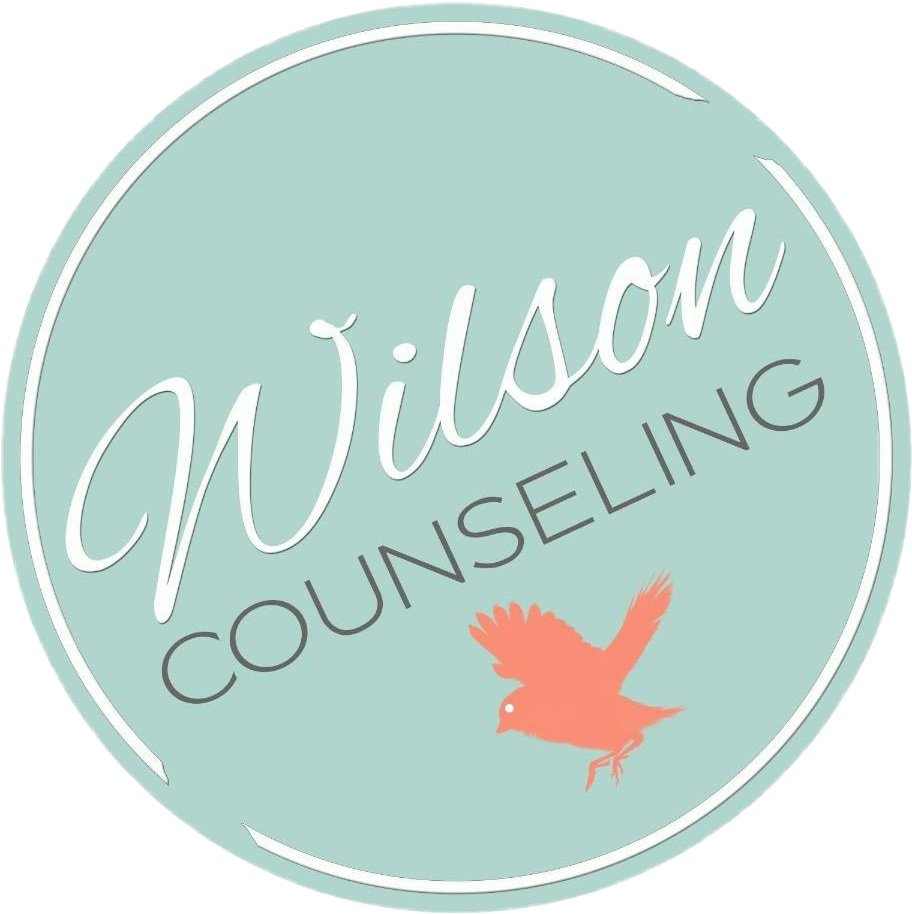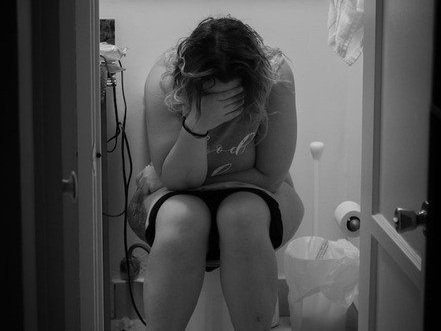Perinatal & Postpartum Depression Treatment in Houston, TX
You love your baby, but you still feel really overwhelmed. You may be struggling with a postpartum mood disorder.
Signs of PostPartum & Perinatal Depression
Are you feeling overwhelmed while being pregnant and/or following the birth of your child?
Have you or people who know you noticed a change in you?
Are you feeling depressed, angry, or anxious?
Do you not feel like yourself anymore?
Are you dreading the responsibilities of the day?
Are you constantly worried about something terrible happening to your child?
Do you feel paranoid that you will drop your baby or they will be smothered as they sleep?
Is it hard to get out of bed?
Does you get overwhelmed easily?
Do you get so angry that you think you’re going to explode?
Does it feel impossible to take care of your baby?
Are you having trouble connecting to your baby?
If this lasts beyond two weeks (aka the “baby blues”), you may be experiencing a perinatal or postpartum mood disorder (PMADS), sometimes called postpartum depression. This is a real mental health condition and should not be ignored. Our caring Houston perinatal and postpartum therapists are here to help support you and help you navigate with postpartum counseling in Texas. You can do do postpartum treatment in the Houston counseling office or as online counseling in the state of Texas.
How common are Perinatal and Postpartum Depression & Anxiety?
PMADS including depression, anxiety, OCD, and PTSD are extremely common. Up to 11% of women face a perinatal mood disorder while pregnant and up to 15% of mothers struggle with a postpartum mood disorder. We also know that PMADS do not discriminate, men and women are at risk and experience this. There are also common factors that put you more at risk for developing a perinatal and/or postpartum mood disorder.
Risk Factors for postpartum mood disorders
Unplanned pregnancy
Difficult pregnancy
Lack of support or poor support
Recent life transitions or crisis
Perfectionistic tendencies
Stress about going back to work
Birth trauma
Having a baby with health issues (anything from colic and reflux to something more serious)
Becoming a mom is difficult even in the best circumstances
Becoming a parent is a huge transition and hard work (even if it’s not your first child). Sleepless nights, trying to figure out what your child needs, putting your needs aside while putting pressure on yourself, and feeling you have a lack of support are all very real things we experience. It’s normal and common to feel these things and there is no shame in asking for help and guidance to navigate this time. Postpartum therapy can give you the tools and space you need to be the best parent you can be. And it will give you the tools and an outlet for managing when you are overwhelmed.
What is the difference between postpartum depression & PostPartum Anxiety?
Postpartum depression (PPD) and postpartum anxiety are both mental health conditions that can affect new mothers after giving birth, but they have distinct differences in terms of their symptoms and characteristics.
Symptoms of Postpartum Depression (PPD):
Mood and Emotions: PPD is primarily characterized by persistent feelings of sadness, hopelessness, and low mood. Mothers with PPD may experience a lack of interest or pleasure in activities they used to enjoy.
Physical Symptoms: Fatigue, changes in appetite, and sleep disturbances are common in PPD.
Cognitive Symptoms: Mothers with PPD often have difficulty concentrating and making decisions. They may also have feelings of guilt, worthlessness, or inadequacy.
Emotional Symptoms: PPD may lead to feelings of detachment from the baby, which can result in reduced bonding with the infant.
Symptoms of Postpartum Anxiety:
Anxiety and Worry: Postpartum anxiety is primarily characterized by excessive and uncontrollable worry and fear, often related to the baby's well-being or other aspects of life. Mothers with postpartum anxiety may experience racing thoughts and constant fear.
Physical Symptoms: Physical symptoms like restlessness, muscle tension, trembling, and palpitations are common in postpartum anxiety.
Cognitive Symptoms: Difficulty focusing and an inability to relax are prevalent in postpartum anxiety.
Panic Attacks: Some individuals with postpartum anxiety may have panic attacks, which involve intense periods of fear and physical discomfort.
It is definitely possible for a person to experience both postpartum depression and postpartum anxiety simultaneously. These conditions can be debilitating and require professional help for proper diagnosis and treatment. Both conditions can be effectively managed through postpartum therapy, medication, or a combination of both. If you or someone you know is struggling with postpartum depression, postpartum anxiety, or related emotional challenges, it's important to reach out to a therapist.
Postpartum Therapy in Houston is an effective treatment for Postpartum depression & PMADS
With a nonjudgmental and compassionate space, PMADS can be resolved and symptoms can clear up pretty quickly (often within a couple of months). There is hope!
Through postpartum depression treatment in Texas, you can face and process fears, sadness, and stress, and learn healthy ways to cope. Our caring postpartum therapists make it as convenient and flexible as possible for you. Feel free to bring your baby or child with you to the office or partake in our online therapy in Texas. We want to meet you where you are all while focusing on your well-being.
Postpartum counseling doesn’t have to go on for a long time. Treatment will only last for a season in your life where you learn the skills you need to feel better and learn to see the positives in all aspects of your life - including your relationship with your partner, your loved ones, and yourself. It is also a time to learn new coping mechanisms because your life has become more complicated with the birth of your child. During our time together in counseling, we can focus on whatever your goal is for yourself from identifying depression and anxiety triggers, to developing healthy coping skills, and techniques for effective parenting.
You may have some questions about Postpatrum treatment in houston..
“I feel like I don’t have time to even shower, how am I supposed to make time for postpartum therapy?”
Becoming a parent or adding another child into the mix is a very big and stressful change (as beautiful as it may be). Taking 50 minutes for yourself to get support is crucial to helping with your overall well being. It will help you become a more present partner and parent. And it will help you deal with the symptoms of anxiety and depression which have completely disrupted your life. As you see symptoms improve, you will actually become a effective which will result in you having more time.
Our Houston therapy office offers flexible scheduling, in the office or online. If childcare is an issue or you’re not comfortable leaving your child, feel free to bring your child or children with you.
“Will my perinatal or postpartum mood disorder ever go away?”
The answer is YES! There is a ton of hormonal changes on top of all of the other life changes that happen when you bring a new life into the world. Sometimes the baby blues last up to two weeks, if it lasts longer - that’s okay. With therapy, the symptoms should alleviate pretty quickly and we can get you back to feeling like yourself.
“I didn’t give birth to the child - will you still be able to help me?”
Absolutely, whether or not your child is your biological child has nothing to do with how you’re feeling. Your feelings of overwhelm, stress, anxiety are completely normal. Becoming a parent, no matter how it happened, is a huge transition. Adoptive parents, fathers, LGBTQ+ parents - all parents can experience these intense feelings during the post partum time. Our therapists are here to help new parents process and cope.
“Does needing therapy make me a bad parent?”
Needing therapy, by no means makes you a bad parent, if anything, it will make you a better parent and show your children (no matter how big or small) that taking care of yourself is important in order to be happy and healthy. Asking and seeking help is a sign of strength that shouldn’t be overlooked.
Become the person and parent you want to be!
Contact Wilson Counseling to schedule your appointment or for a free 15-minute phone consultation to see if our therapists are the right fit for you.
GET THE BEST PeriNATal & Postpartum depression COUNSELING IN HOUSTON, TX
Schedule an appointment about how counseling can help you create a healthy, meaningful, empowered life.
Sign up for our email list to get mental health resources sent to you monthly.
In addition to Perinatal & Postpartum Depression Counseling, we have other mental health services in our Houston, TX counseling office in the following areas. Our caring therapists also offer:
Online Counseling, Anxiety Treatment, Eating Disorder Counseling, Family Therapy, School and College Counseling, Child Therapy, Trauma Therapy, PTSD Treatment, EMDR Therapy, Parenting Counseling, Infertility Counseling, Teen Counseling, Career Counseling, LPC Supervision, LGBTQ+ Counseling.
If you’re ready to get started, please contact Wilson Counseling today. Together we can help you find support and guidance through this transformative journey towards motherhood.










